
One of the quickest ways to piss me off is to tell me directly or indirectly that my pain is not real. I’ve spent the past 12+ years living in chronic pain. I don’t function in the world in the way most people can because of that pain and the associated disabilities that come along with it. No part of my life has been untouched because of what I have endured. Yet despite knowing I am a much happier and better person now than I was 12 years ago, I wouldn’t wish the hell I’ve been through on anyone; the only exception to that is when someone tells me that my pain doesn’t exist. Then I would like those people to spend a month in my body. I would bet you anything that when they came out of my body after having spent a month literally walking (or unable to walk at all on some days) in my shoes, they would be singing a very different tune.
Today, I managed to let someone push this button of mine yet again. In a discussion about the overprescription of antidepressants in our society on Facebook, I put up a links to blog post I had written that talks about Lyme patients being erroneously misdiagnosed as depressed and put on antidepressants rather than the physicians actually looking for the real problem. I also linked another post I had written about how depression is sometimes caused by issues beyond brain chemistry but that most Western doctors are ignorant of those other causes. One of the people involved in the discussion, clearly not my lifelong friend, immediately responded that chronic Lyme does not exist and there’s no scientific proof that it does. Wow. You mean like this recently released study from a researcher at Northeastern University talking about the biological mechanism through which borrelia burgdorferi survives the standard antibiotic doses recommended by the CDC? That kind of evidence? This is the point at which I hit the block button on Facebook. I have a zero tolerance policy for people who will directly attack me or my life. If you want to believe differently than I do, that’s your choice, but don’t tell me directly and rudely that my diagnosis doesn’t exist and that the pain I’m in isn’t real. What was most stupefying to me was that this person stated that she has a mental illness that requires antidepressants. I would bet that at some point at her life she has been told that she just needs to pull herself up by her bootstraps and she’ll be fine. Mental illnesses are still not accepted by our society, and they are poorly understood. However, that doesn’t give this woman the right to turn around and tell others their diseases don’t exist either. Compassion to all who are suffering is appropriate even if you don’t agree with their diagnosis or choice of medical treatment. The cyberbullying that our culture continues to foster in this regard is amazing. So many people believe that they are anonymous on the internet. They don’t have a problem spewing hateful words and demeaning obscenities at total strangers. Somehow the internet creates a situation that causes people to forget their basic manners. Most of the time strangers are polite to each other in public, but the internet removes that civility and results in a great deal of anger and pain. Last week on The Bachelorette: The Men Tell All, host Chris Harrison and bachelorette Kaitlyn Bristowe addressed the problem of cyberbullying. Bristowe has made choices that not everyone agrees with this season, and she has been the recipient of a lot of vitriolic criticism as a result. During the show last week, Harrison read some of the worst of the tweets that Bristowe has received including death threats. As he read the tweets (with the usernames blacked out to protect the not-so-innocent), Bristowe’s eyes filled with tears. A great number of the comments on Twitter at that point were in support of The Bachelorette’s decision to address cyberbullying. However, many were not. Even some people whom I usually find to be fairly level-headed and rational disparaged the decision to discuss this topic. I read quite a few attacks on Harrison for “torturing” Bristowe by reading those comments out loud. From what I can tell of Harrison, he is a genuinely nice guy who did not pull this discussion about cyberbullying out of thin air. I’m positive he had Bristowe’s consent before he started especially based on the quiet comments he made to her as they went to commercial break. Bristowe’s genuine tear-filled response was important for America to see even if (or especially because) it makes us uncomfortable. Those users on the internet whom the cyberbullies are attacking have real feelings and real emotions. The tears and pain are real, too. The mere fact that so many people bristled against this discussion shows how desperately it is needed. If television stars and societal leaders aren’t willing to speak up against this kind of bullying behavior, change will be much slower in bringing about its end. I’ve mentioned before that I left online dating, tired of the rude behavior and horrid comments about overweight women. What was clear to me in the world of online dating and again today on Facebook is that cyberbullying is real. Compassion is sorely lacking on the internet. Our world is full of so many wonderful reasons for living, and the internet brings about so much positive change in the world in ways that couldn’t have happened before its existence. It is long past time for that change to include an end to discriminatory words, hateful posts, and demeaning responses. We can be better than this as a society. © 2015 Elizabeth Galen, Ph.D., Green Heart Guidance, LLC
Tonight's Integrative Health Practitioner seminar has been canceled due to low enrollment.

Consumer Reports recently issued a statement advising families with children under six to stop buying toxic laundry pods. The report cites a two year, 17,000 incident survey where children were injured from “swallowing, inhaling or being exposed to the chemical in the detergent pods.” Studies like this should make the average consumer pause and think: If the chemicals in the detergents are enough to cause serious injury to children merely from being exposed to them, then is it really a good idea to be using them on clothing that we wear and sheets we sleep on for a total of almost 24 hours a day?
It’s true that water rinses out a large portion of laundry detergent, but if you take your clothes and put them in the washing machine with no new detergent, you will be amazed at the amount of soap suds that arise. Generally speaking, manufacturers of laundry detergents recommend using far more soap than in necessary. I only use one quarter to one half the recommended detergent amount, and I still can get suds in my machine when putting a theoretically clean load of laundry back in the machine. Residue is designed to stay in our clothing to give them the "fresh" scent that manufacturers tell us we want to smell in our clean laundry. I never really thought about what was actually in my laundry detergent until I got sick with late disseminated Lyme disease which caused multiple chemical sensitivities. I understood that some laundry detergents were far more harsh than others. Tide causes contact dermitis issues for my dad. I used All Free & Clear for my family because it was what most dermatologists recommended for those with sensitive skin. We avoided “baby” formulations or brands like Dreft which contained fragrances that are likely to cause skin irritation and which aren’t actually better for babies. They’re just marketing gimmicks to sell more expensive detergents. But the fact that all of these mainstream detergents and their competitors contain chemicals made from petroleum products was novel information to me. I began to ask why would I want to put that in my clothes that went on my body. However, once I realized how sick pesticides, cleaning chemicals and other synthetic products were making me, I began switching my family to natural products in an effort to maintain a modicum of health. When we switched to Seventh Generation Free & Clear, my ears no longer clogged up so terribly. Previous to the laundry detergent switch, I had to take pseudoephedrine 24 hours a day or I couldn’t stand up straight because the fluid in my ears made me so dizzy. Yet when I switched laundry detergents to a natural formula rather than a petrochemical one, I solved the “allergy” problems I had dealt with for the past 10 years that no doctor had found a solution for. I no longer had problems with my ears being full of fluid. I now strongly dislike all synthetic detergents. They are petrochemical based, and none of them are really all that safe despite what their manufacturers tell us. Their components are highly toxic to my super sensitive nose which acts as my first line of defense against such things. I have a hard time being around people who use heavily scented laundry detergents in areas without good ventilation; even All Free & Clear or other free and clear petrochemical detergents aren’t the best for me to be around for extensive amounts of time though it is still my preference for those who insist on using mainstream petrochemical detergents. When you wash your clothes, start thinking about what is in your laundry detergent. Begin looking at the list of ingredients. Read the warnings. If you are feeling ambitious, look online for the material safety data sheet (MSDS) for your detergent. See what warnings are attached to it. What can the chemicals in it possibly do to your body and to your loved one's bodies? Medical science has proven time and again that we absorb a lot through our skin which is why there are nicotine, pain, and birth control patches. Do you really want all of those toxic laundry chemicals going into your body all day every day? © 2015 Elizabeth Galen, Ph.D., Green Heart Guidance, LLC  an abstract shot of the bumper of a Lexus an abstract shot of the bumper of a Lexus
In recent months, I’ve found that the sense of self-entitlement among Austin drivers during traffic is rising rapidly. I suspect that this is in part related to the population changes happening in the city and surrounding areas as Austin experiences rapid growth which the infrastructure is poorly equipped to handle. That’s not to say that Austin hasn’t always had its share of rude drivers. However, what I’ve been seeing lately is a blatant sense of narcissism among drivers who seem to think that they are the only ones who matter.
One of the worst examples of this that I’ve encountered was a few months ago when there were two major accidents on one of the main highways in Austin, a highway that is undergoing major construction right now. It normally takes me 10 minutes to drive this particular stretch of roadway when there is no traffic; during traffic it is more like 20-25 minutes. On this particular day, it took me 45 minutes, and if I’d needed to go further into the city, my trip would have been delayed even more. I have to get off on the access road to get to a building where I have regular appointments. However, due to the accidents on the highway, many people were getting off onto the access road in an attempt to unsuccessfully find a faster route. The section of the access road I traverse is oddly designed; I’m sure non-locals would be very confused by it as it is two ways in parts and only one way in another. Locals, though, are more than aware of how this part of the road functions. Yet despite this, I watched car after car rudely using a right turn only lane to rush to the front of the straight-going traffic line and then dangerously cut off the traffic as they forced themselves over. This meant that anyone in the straight traffic lane was moving at about ten feet per minute at best. I saw many near accidents and watched some even stupider maneuvers that went beyond illegal and into seriously dangerous. I finally called 911 and requested that an officer be sent to that particular intersection to help deal with the overflow from the accidents on the highway. The risk of someone getting hurt was far too high. As I sat there in that traffic, very frustrated by the slow movement forward when I was so close to the office I needed to get to, I was not pleased by the narcissism so many drivers were demonstrating. It was clear that they believed they were the only ones who mattered. Clearly they were the only ones who had important places to be that they were late for. The rest of us, from their views, surely were just out for joyrides during a weekday morning traffic situation. Yet all of us had some place important to be. I texted my appointment and let her know that I was stuck in traffic; she was fine with it as she knew how bad it was. I was only five minutes late because I allow time for traffic issues, but my stress levels were very high once I got there because of the insane driving I had witnessed. I understand how frustrating it is to be late for important meetings, and I know there are people out there who will charge fees for clients who show up late to appointments. However, in the situation of a massive highway issue such as two separate accidents, most people understand that it has the potential to bring that particular highway in Austin to a grinding halt. I, and many others who are rational humans, will do their best to help reschedule clients when it’s not their fault that the roadways aren’t cooperating. Just a few weeks ago, I was heading home from my morning appointments. I stopped to pick up lunch for my son and I at a local restaurant, and then I took a different road than I normally would to get home. I passed the first entrance to my neighborhood to take the second one that is closer to where I live, but just as I did so, the traffic came to a complete and total stop. I was cursing myself for not having taken that first entrance as a span that would normally take 30 seconds to drive suddenly took 15 minutes. However, there was nothing I could do but wait my turn. A quick traffic search on my cell phone showed that the road I was on was closed due to an accident; later that day I saw on a news report that a motorcyclist was killed in the accident which mandated the need to shut down the road. As I sat listening to the radio and watching police do their best to direct all the traffic from the major road into my neighborhood, the man in front of me began to lose it. He was driving in a Jeep-type vehicle with the roof down, so I could see him cursing and waving his arms at the police out of his frustration with how slowly the traffic was moving. While I think the police could have done a more effective job in directing traffic, they were doing what they could with limited resources. Screaming and cursing wasn’t going to change the situation. More importantly, I knew that if the road was closed, someone (and likely many someones) was having a much worse day that I was being stuck in traffic for just an extra 15 minutes. I really wish that Austinites would adopt some common sense traffic rules and perspectives on life when they encounter major traffic issues. Among these I would like people to:
Austin traffic is only going to continue to get worse if the area leaders don’t start getting realistic about road development to accommodate the growth. As frustrating as it is, road congestion is here to stay. Major accidents will continue to happen. We can’t change those realities. What we can change is our attitudes toward them. Remember that you are just one of well over a million people who live in the Austin area. If you want to make our city slightly better for all of those who live here, then find ways to demonstrate behavior in traffic that you want others to reflect back to you. © 2015 Elizabeth Galen, Ph.D., Green Heart Guidance, LLC  photo taken at Austin Discovery School photo taken at Austin Discovery School
I often talk about my past lives in my blog posts and in real life, but I also say that I am willing to work with whatever spiritual beliefs that my clients may or may not hold. Most people in America don’t believe in past lives; one estimate places the number at around 25% (which I think might actually be a high estimate). In metaphysical communities, though, that belief rate is closer to 99% in favor of past lives. So how do I reconcile the two vastly different perspectives about the afterlife for the 75% of Americans who believe we only live one life?
I tell clients that I believe in past lives, but I understand that they may not. I am fine with that. We all have different belief systems that shape our views of our lives. I speak of my past lives because they have been very influential in my healing process. For me, those lives are as vivid and as real as the one I am living now. Yet for those who are skeptics or are not believers, I am happy to present past life information as stories that our minds create in order to distance us from our traumas. With that space between us and our intense pain, it can be easier to chip away at the often repressed or inaccessible trauma rather than confronting it head on. Past lives become like metaphors in this situation: they are aids to help us understand something that is hard to grasp otherwise. Through the imagery of past lives, we can work on healing traumas that we otherwise might not be able to heal. What I have actually found in receiving healing messages for clients, though, is that the clients who don’t believe in past lives don’t usually get information on them. Those who are open to the idea or who are believers are far more likely to receive information on healing from past lives that needs to be done. In this way, the spirit guides who provide the messages help give clients exactly what they need to hear when they need to hear it. © 2015 Elizabeth Galen, Ph.D., Green Heart Guidance, LLC 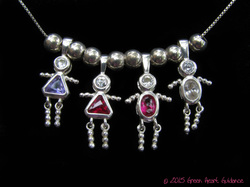
One of the ways in which sexual shame manifests in our culture is in how people talk about our sexual body parts. Every so often a mom with toddler children will approach a mothering list I am on with a question similar to, “What do I tell my kids to call their genitals? The proper names just don’t seem appropriate for a toddler.” In most cases, this is sexual shame rearing its ugly head. Those adults who are uncomfortable with naming body parts are often people who have grown up in homes where sexuality is shamed. The adults didn’t grow up feeling comfortable with their own bodies, and now that they have children, unless they have some intervention, they will unwittingly pass on that sexual shame to their own children.
When this question appears on the list, most of the long-time mamas will reply, “We call genitals by their proper names at our house from birth onward.” This was the way we approached body parts in my house. Children can be taught words like penis and vagina. While they may not be able to pronounce the words correctly at first, they will eventually learn them. If they are able to comfortably name their own body parts without shame, the first step in change has been made in working to undo the widespread societal shame that is shared about our bodies and our sexuality. If you find yourself unable to talk to your young children about their body parts, it’s a great time for you to begin working on healing of your own. There are many talented life coaches and therapists who are able to assist you coming to terms with your body and your sexuality, helping normalize them and making it easier for you to teach your children a healthier belief system about their bodies. However, be wary as you select a guide as there are many unhealthy sex therapists or healers in the world. Carefully check out the websites of anyone you consider; if anything seems off to you, trust your instinct that you don’t want to work with this particular practitioner. Keep searching until you find someone who makes you feel as though you will be safe while you process the stored shame you have around sexuality. That may not be the first person you speak with. I am happy to work with those who have sexual shame to overcome, but I acknowledge that I am not the correct practitioner for every person who needs to heal. With some devoted work, eventually it is possible to succeed in changing your thoughts and emotions around your body and sexuality. Shame can be released, and you can find healing that will allow you to talk to your children and others about sexuality, body parts, and other issues without feeling as though you are talking about something “wrong” or improper. You can reach a place where sexuality is a positive and even holy thing in all its aspects. © 2015 Elizabeth Galen, Ph.D., Green Heart Guidance, LLC  taken at Boggy Creek Farm taken at Boggy Creek Farm
On Friday, I ran in Whole Foods to grab a few last minute items for my son’s birthday party this weekend. I was limited on time because of my appointment schedule, but I knew that if I didn’t get distracted, I could make it through the store with time to spare because my list was short. When I got to the checkout stands, all of them had short lines. I was torn between two, and of course, I chose the one that ended up being a far longer wait and far more frustrating for me.
A woman in front of me in line was buying all organic food. She was buying natural dog food, too. Yet despite the importance she obviously places on healthy eating, she also was wearing chemical perfume. This kind of logic drives me nuts because perfume is a horribly toxic substance that is in no way in line with organic eating. Perfume also still makes me sick if I'm around it too long. Thus, I stayed as far away from her as I could while waiting. She was wearing a cute rayon spaghetti strap top which showed off her tattoos quite well. I wouldn’t say that she was skinny; she was probably a size 10 or 12, but it was a very firm, very toned 10 or 12. I would guess she was in her late 20s. Her skin was nicely tanned as well. The appearance of this woman was clearly too much for the cashier to handle as he began flirting with her in a less than subtle manner. She apologized for forgetting her reusable bags (no judgment on my part there… I’ve done that far more than once), but he assured her it was perfectly fine. She said she could bag the groceries since there was no available bagger at that point. He definitively protested that she didn’t need to do the bagging because he would do it for her because he was so good at it after all his experience. He kept making joking comments to her while SLOWLY scanning and bagging her groceries. Meanwhile, I was watching the clock tick by while I stood there wanting to get away from the perfume, the flirting, and the store in general. Finally, he finished helping her, and she went on her way. No phone numbers were exchanged. He said hi to me before he started scanning my groceries. I walked to the end of the conveyer belt where I stood with my fabric bags ready to load my groceries. I had to tell him twice-- very loudly-- that I had fabric bags before I got his attention. He said, “Ok” and went back to scanning the groceries but didn’t bother to turn on the conveyer belt switch for me. So I turned on the conveyer belt from the bagging end and started bagging my 20 or so groceries. Midway through, the cashier half-heartedly thanked me for bagging. Never did he offer to me to do it for me. I paid, he said thank you, and I left. If it hadn't been for the way he treated the previous customer, I probably wouldn't have thought anything much of our interaction. However, the way I felt walking away from his lane was something that no customer should feel: that they were treated lesser than the customer in front of them based on their physical appearance. As I walked out of the store, I noticed no one was in line at the customer service counter where a female employee was working. I stopped and told her, “Please remind the cashiers that flirting outrageously with customers and then treating the next customers in line as less than them doesn’t feel good for the other customers.” She looked at me, obviously surprised by what I had said but she said, “I agree with you totally. Do you mind telling me which cashier you are referring to?” I handed her my receipt so she could figure out who had been “helping” me check out. When she found the name, she looked at me again, rolled her eyes, and nodded her head yes. Without words, she was able to convey to me that this wasn’t just me having this experience. Either other customers had complained about this cashier or she herself had experienced problematic behavior from this cashier. All of us deserve equal treatment in public forums such as grocery stores. Flirting with a customer may happen on occasion, though I suspect that this cashier uses flirting as his default behavior toward any woman who is young enough and/or pretty enough to meet his personal standards. Yet this is not always appropriate, especially when it’s clear the attention isn’t returned by the recipient of the flirtation. When other customers receive treatment that is far obviously different than what the “prized” customers receive, the societal myths of beauty and acceptability continue to be promoted in subtle ways. All of us deserve to be treated equitably in public forums such as grocery stores where all of our dollars are just as valuable as others’. © 2015 Elizabeth Galen, Ph.D., Green Heart Guidance, LLC  Irises are reputed to help us discover our talents in past lives. Irises are reputed to help us discover our talents in past lives.
My journey into exploring my past lives began several years ago as a fairly naive attempt at healing. I have a scar on my body that causes me a great deal of pain 29 years after the event that caused it in this life. I had read that in such cases, where nothing seems to heal the pain of the scar, that there usually is a past life issue involved. Once the past life is cleared up, the pain in the present life will often recede. I had always been open to past lives, but I had no concrete evidence to make me believe that I had lived them. Speaking with my mentor one day, I told her that I wanted to explore past lives to see if I could find the root cause for my pain. My mentor cautioned me that it’s best to do past life regressions with a human guide because of the traumatic incidents that the regressions bring up and release. We agreed to meet again in a week or two to begin exploring my past lives.
Except that didn’t happen. My spirit guides must have been laughing at our conversation because as soon as I opened myself up to seeing my past lives, they began showing them to me. I didn’t need a human guide to assist me; I was perfectly capable of seeing the past lives on my own with the help of my spirit guides. I’ve seen dozens of past lives at this point in my journey, and yet I know there are many that I still haven’t seen. Some of the deaths that I have seen include:
Seeing the previous deaths your soul has encountered is very difficult. None of those are easy events to contemplate, but when doing past life regressions, one can actually end up reliving the traumas of the deaths. In the case of trauma that happened in Ireland about five lifetimes ago, I actually had to relive the events leading up to and including my death. I was on my massage therapist’s table, and she was working on my diaphragm. It had been rigid for several days, and nothing seemed to be able to loosen it up. As a result, my breathing had been constricted. In a split second, my massage therapist was able to get into my diaphragm and release it. When the release happened, I was transformed into the moments before my death. I watched a crowd rioting around me, and an angry man with sandy red hair and a red beard came lunging at my abdomen with a pitchfork. The pain was unbearable, and the emotional agony was even worse. The situation in Ireland ended with me being burned at the stake as a witch. Back in the present day, my massage therapist could tell whatever was going on with me was horrific. This was by far one of the most awful deaths I experienced, and it was one which stopped me from using my metaphysical gifts for several lifetimes. Despite the painfulness of learning about these deaths in past lives, I have also been able to find freedom from inexplicable fears in my life through learning about the past lives and releasing the traumas from them which I was holding onto. I was able to figure out that some of my claustrophobia and dislike for spelunking comes from the mining cave-in that eventually lead to my death. I discovered that my fear of heights especially along cliffs was due to having been a child sacrifice. My strong dislike of guns in this life came about from having been shot to death in my life during World War II. Simply bringing awareness to the roots of my fears helped loosen their hold on me. What’s most obviously not on that list of deaths is the event in a past life that caused the scar that gives me so much pain in this life. There are some lives for which I haven’t seen the actual deaths because they aren't necessary to heal. Sometimes the trauma that sticks with our souls results from our experiences in our lives. Traumatic incidents from those lives have included:
All of these events didn’t kill me, but they were traumas, and one of them is part of what has created the ongoing scar pain on my body in this life. You’ll also note that there were many lives where I could easily be described as a horrid person. That’s true for all of us. As we learn how to become good people, we experience all sides of issues including being perpetrators, victims, and witnesses. Somehow our souls carry those experiences along with us between lives. The traumas continue to add up over the years, stored in our reincarnated bodies, unless we work to release them. For me, healing from Lyme has actually turned out to be a major journey of releasing these lifetimes of trauma in order to allow my immune system to function better. I honestly don’t understand how we can store the pain from previous traumas, lives and deaths in our bodies. However, I know that I have experienced it time and again in my journey to health. © 2015 Elizabeth Galen, Ph.D., Green Heart Guidance, LLC 
Conventional wisdom states that in order to have a happy marriage, you should marry your best friend. A Google search of that phrase turns up quite a few articles, studies and blog posts confirming this very notion. Yet I discovered the hard way that marrying one’s best friend is not a guaranteed way to a create a lifelong recipe for happiness. In my case, it led to disappointment and divorce.
My ex-husband and I began dating when I was very young: I was 14 years, 8 months and a sophomore in high school; he had just turned 17 and was a junior. We had been friends for the year prior, but then suddenly Cupid’s arrow hit us and we saw each other in a very different light. Our friendship blossomed into romance, our first and only romantic relationship for both of us until the time when we separated 22 years later. We both thought we had found our “forever” person. After five plus of dating but before our wedding, I had the distinct thought that I was settling in my choice of marriage partner. My fiancé was a wonderful man: smart, caring, and loving. I knew he wouldn’t physical abuse me, and he would be a good provider. I was sure he would make a great dad, and that was very important to me. He was my best friend, yet I also knew that in marrying him, I was giving up any chance of having romance in my life. My ex was not a romantic person. I’m not an over-the-top romantic, but I am a woman who appreciates having her birthday acknowledged or occasionally having flowers or a new book given to her. I also knew that the passion between us was more than lacking at times. Yet when I looked at the whole picture of whom he was, I thought that sacrificing romance and passion was a small price to pay for marrying my best friend. It was, after all, what common advice dictated. It turns out that wasn’t true. I needed romance and passion in my lifelong relationship with my partner. I needed friendship, to be certain, but I also needed more. I needed someone who would also cherish me as a woman. As the years passed, this need became more important rather than less, and I began to realize how much was actually missing from my marriage. The time right after my ex-husband and I separated was the best our relationship had seen in a long time. We occasionally began talking on occasion, and we started to find our friendship again. What we came to realize was that we made far better friends than lovers. In the case of popular advice, our relationship was not the norm: marrying our best friend resulted in us also losing our best friend. Our relationship was better as a friendship rather than a romance. That doesn’t in any way deny the romantic feelings we had for each other. However, it does break with conventional wisdom. A year after our divorce finalized, I am far happier as a divorced woman than I could ever have imagined. I never dreamed my marriage would end, but I am grateful it did. Staying in a relationship that was no longer even a friendship was not a healthy option for either of us. © 2015 Elizabeth Galen, Ph.D., Green Heart Guidance, LLC |
Elizabeth Galen, Ph.D.
Holistic Life Coach and Categories
All
Archives
January 2023
|
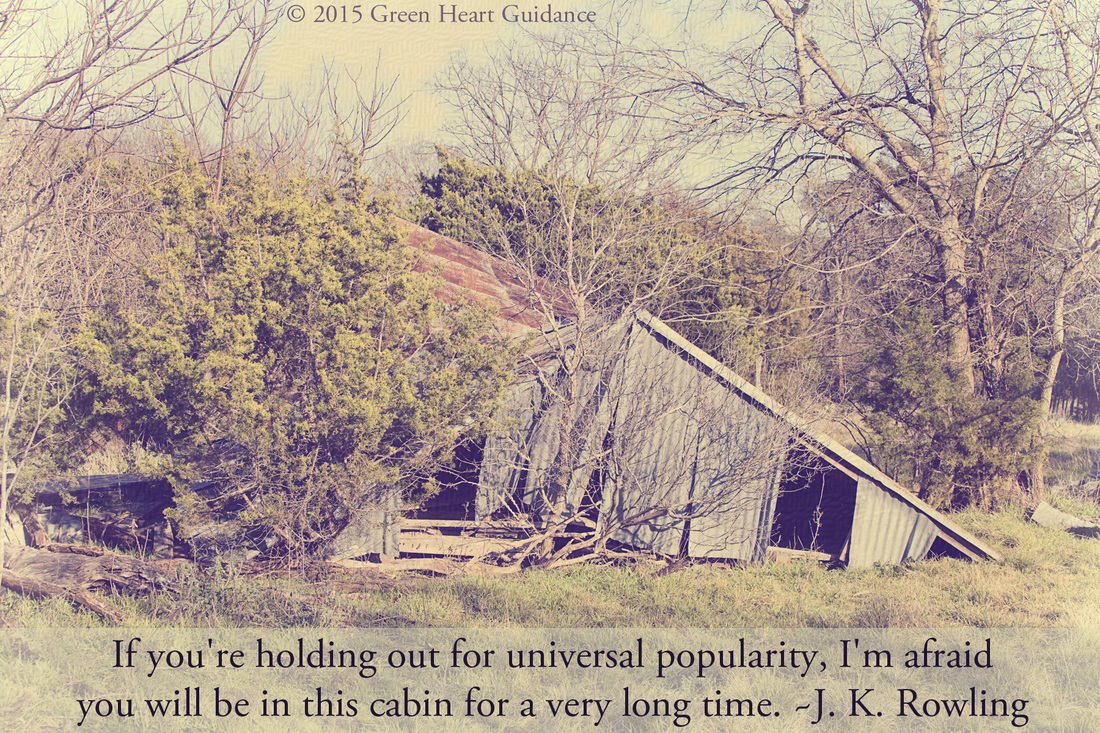
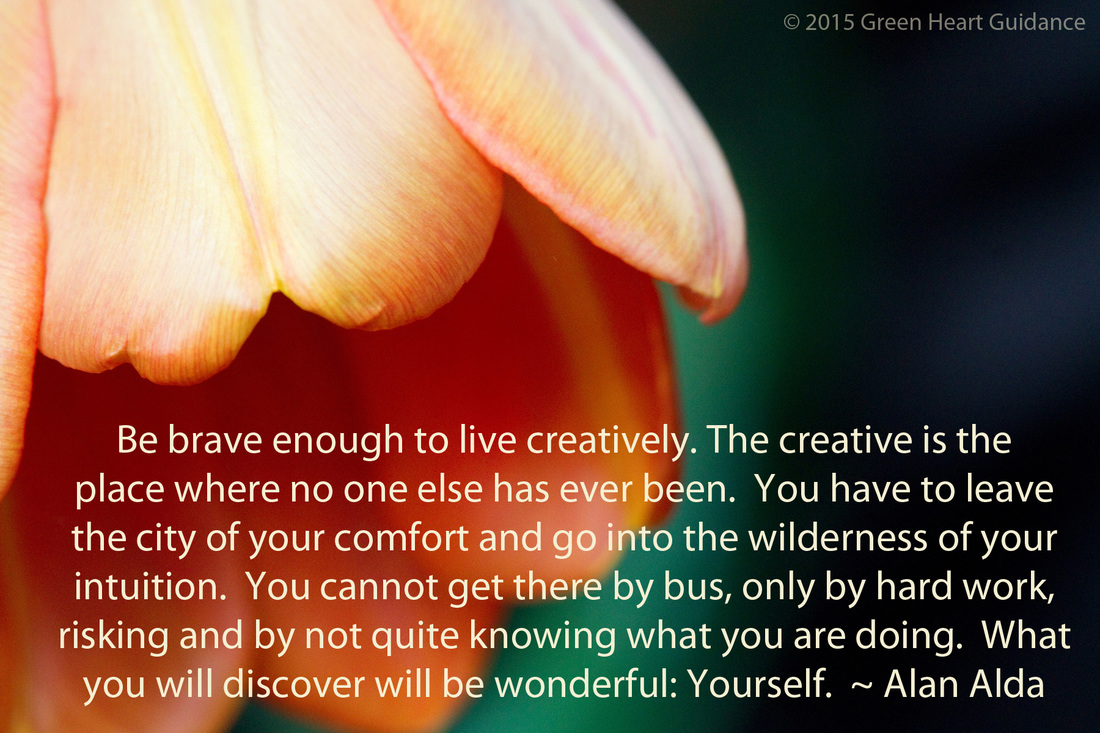
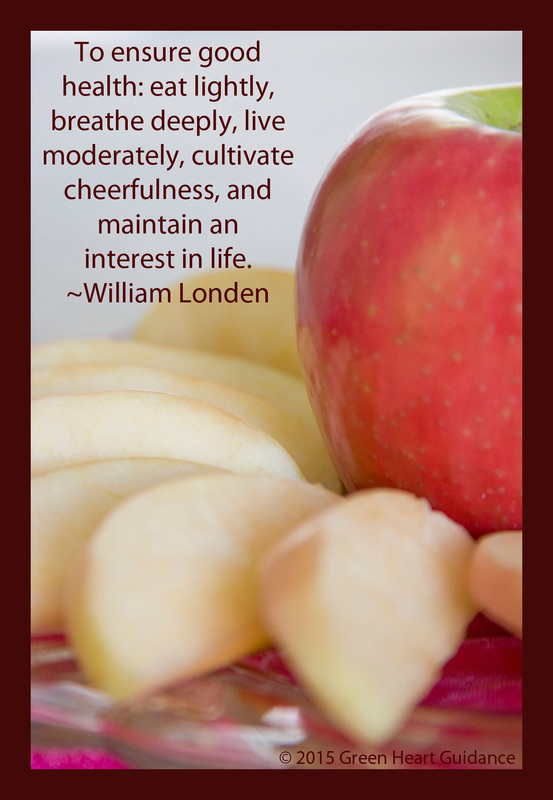
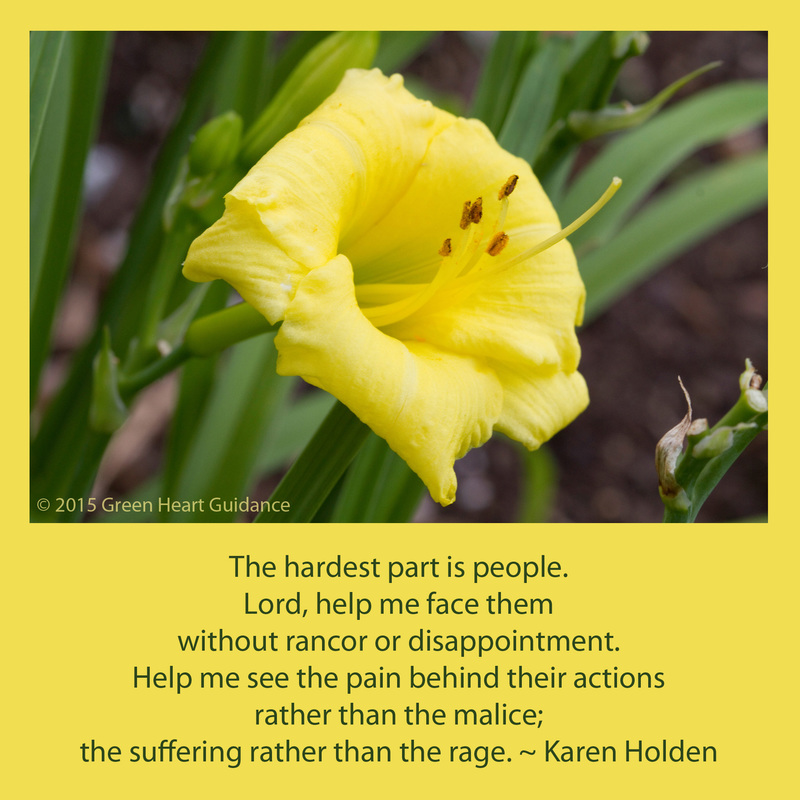
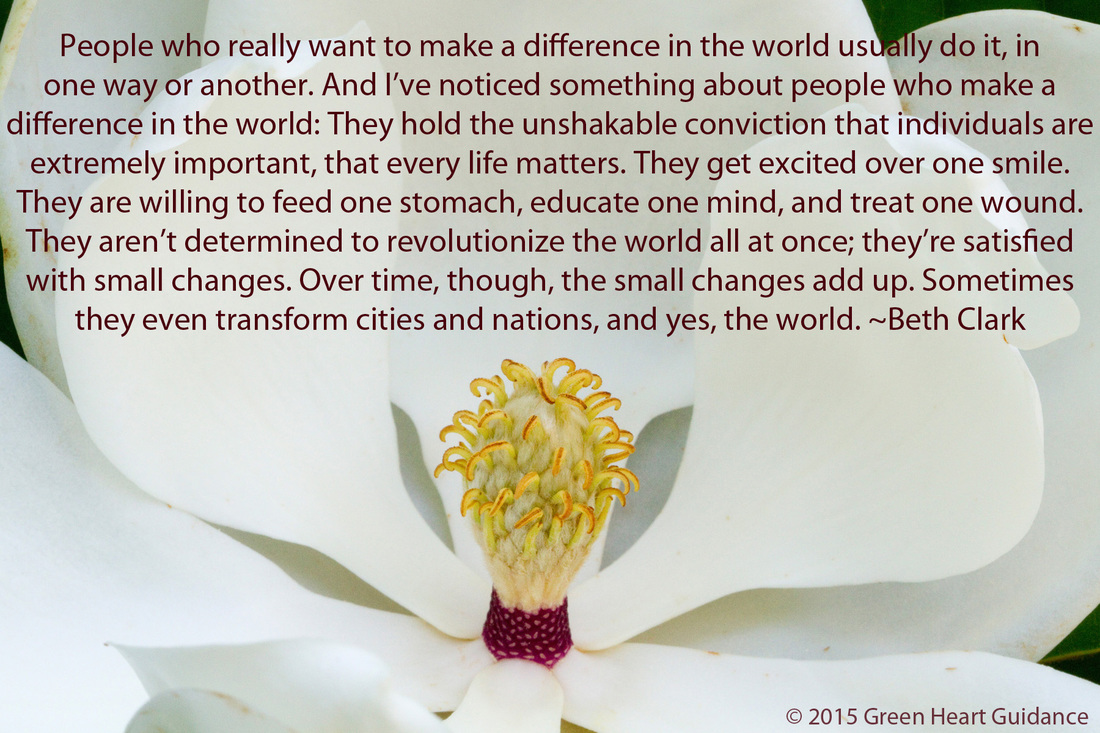
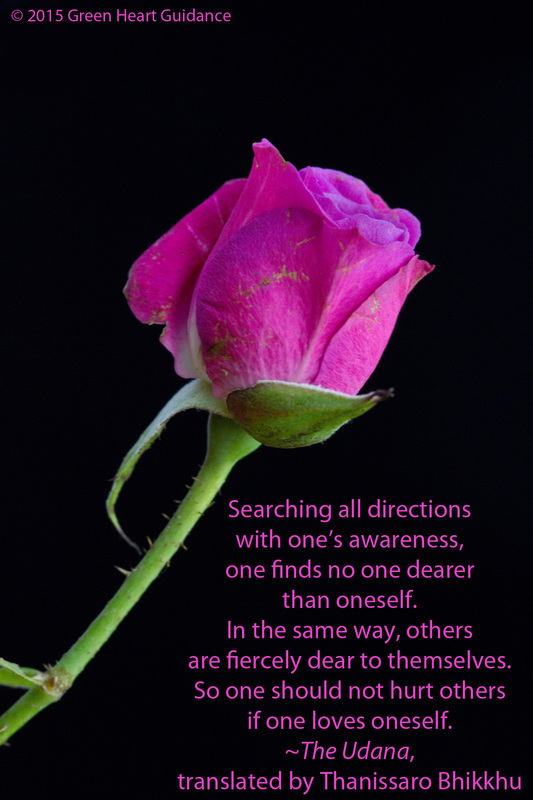
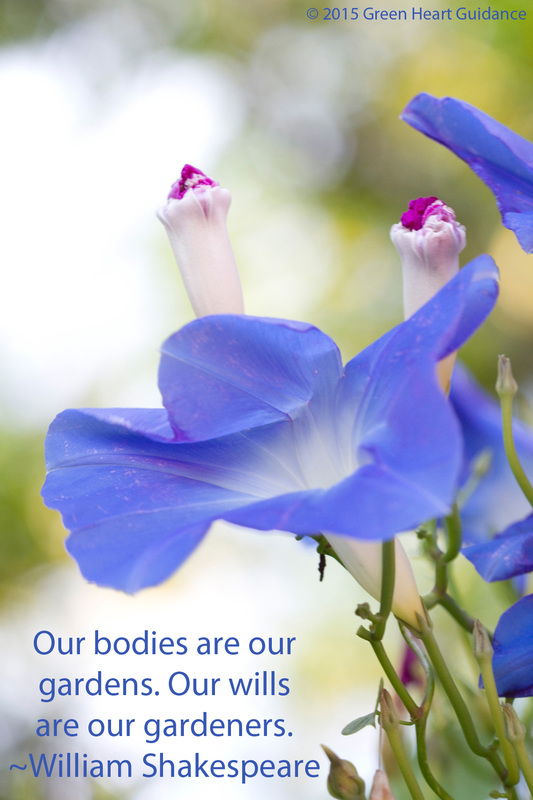
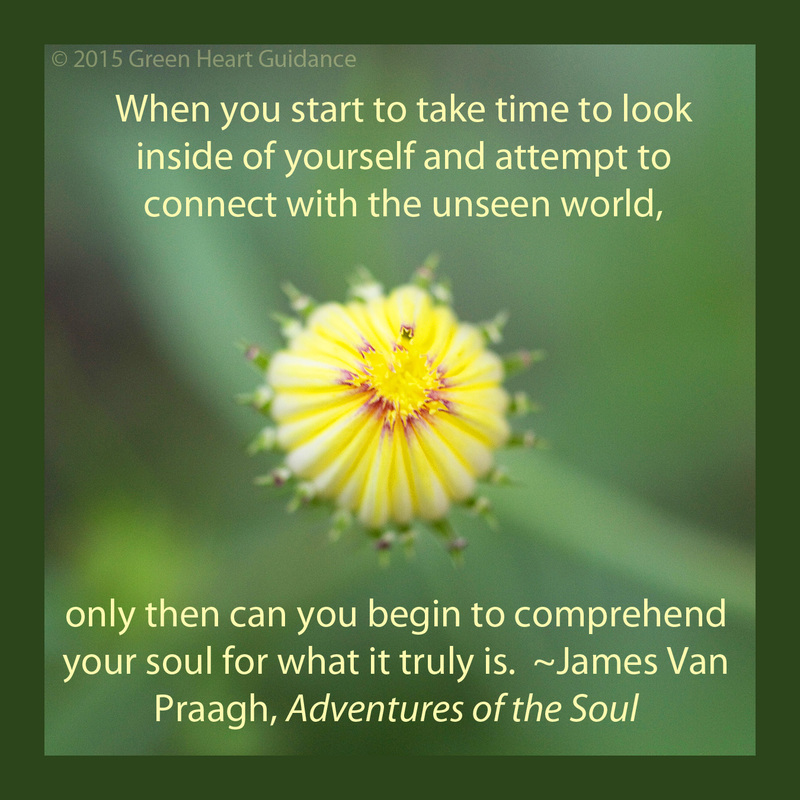
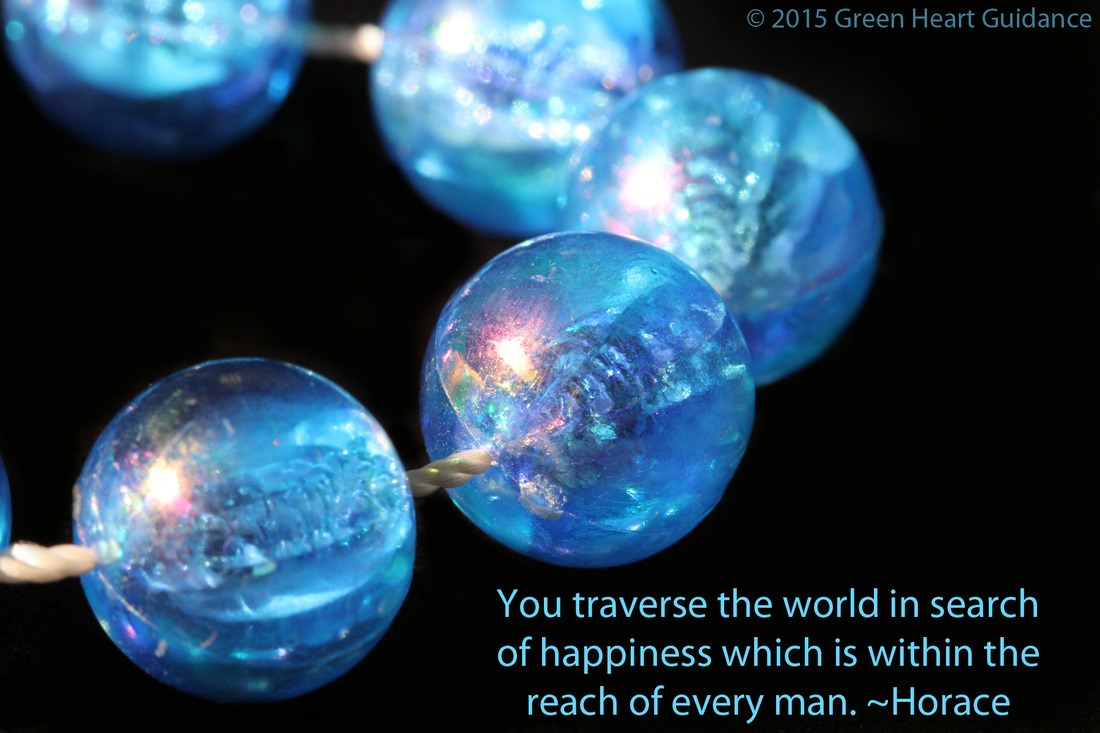
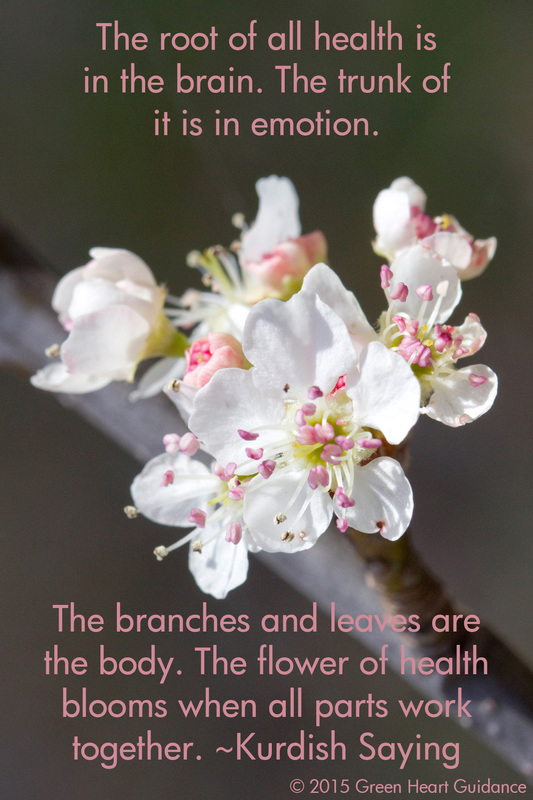
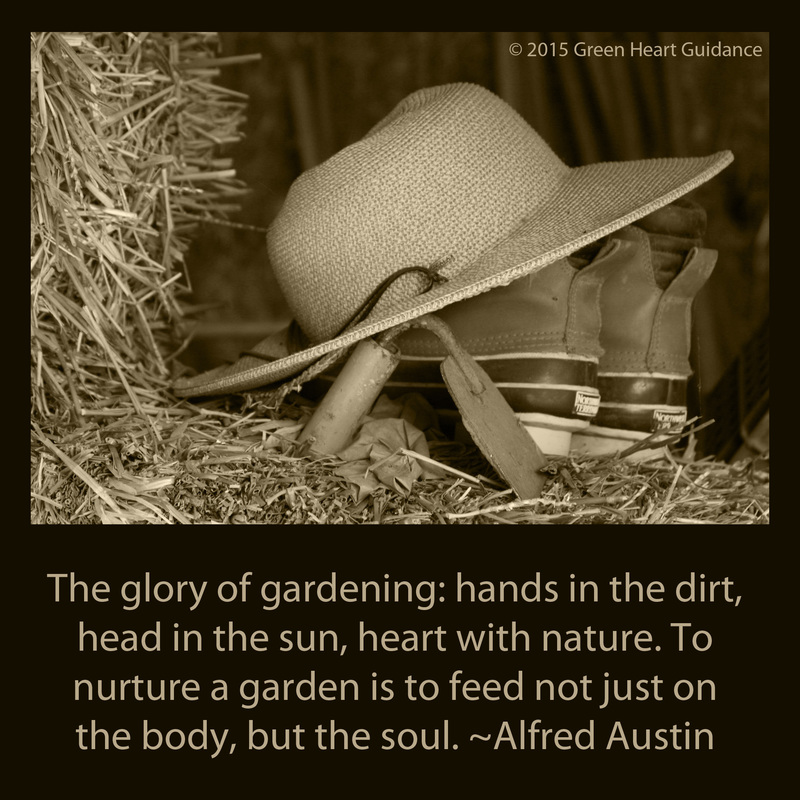
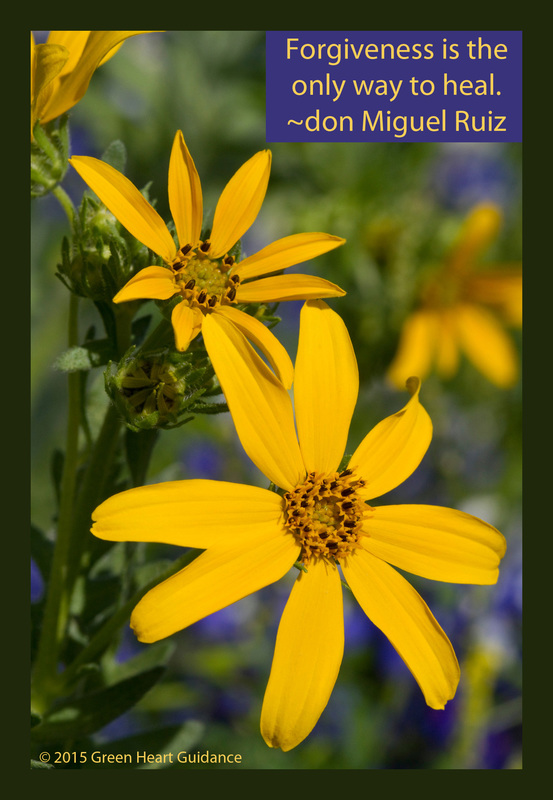
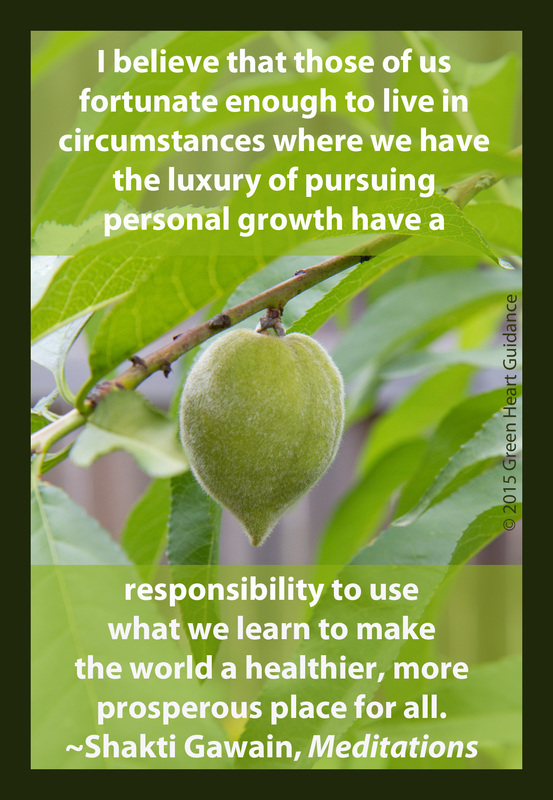
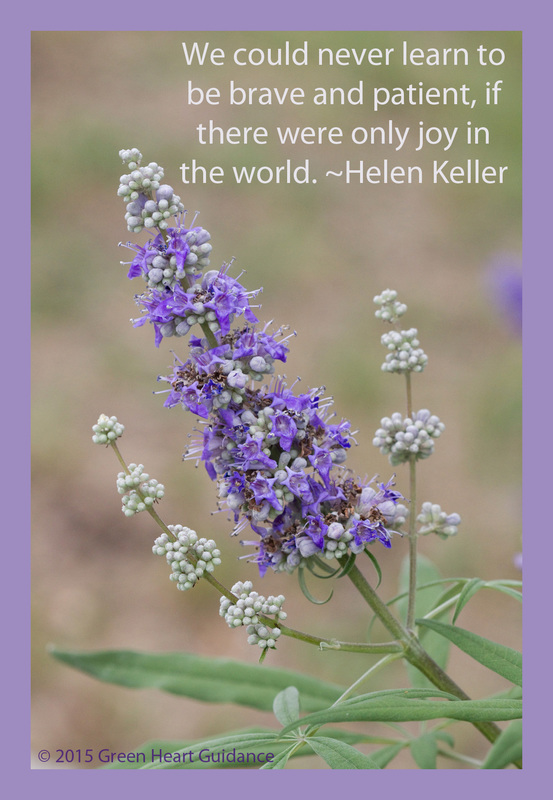
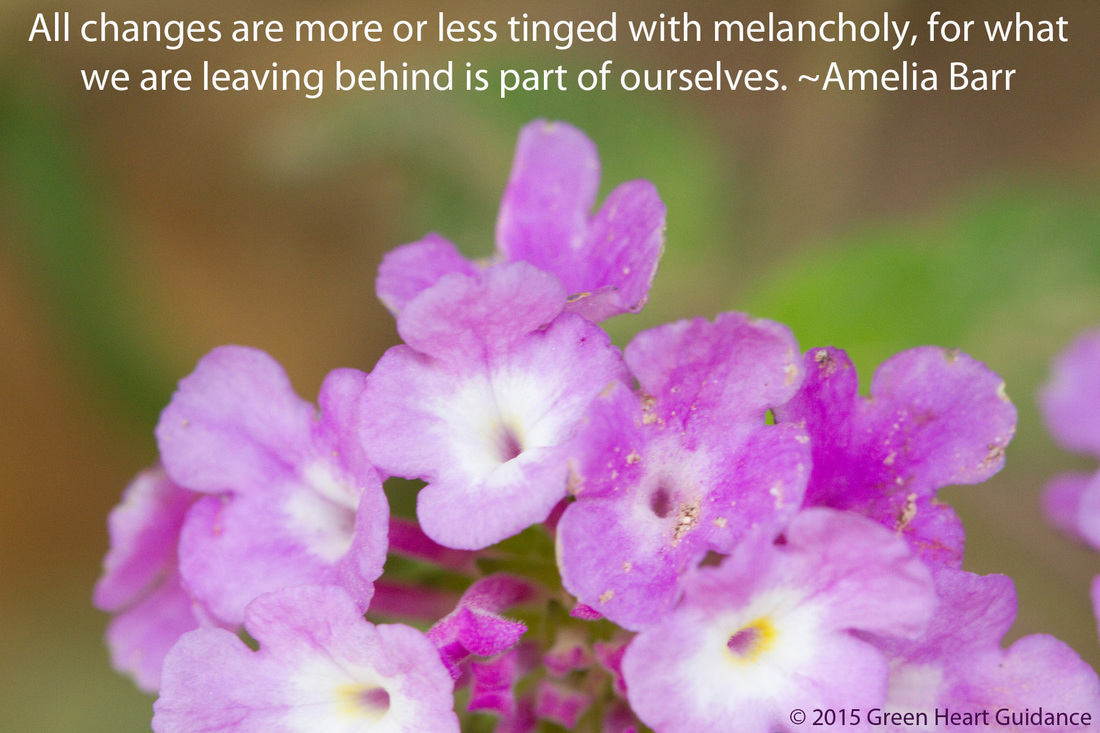
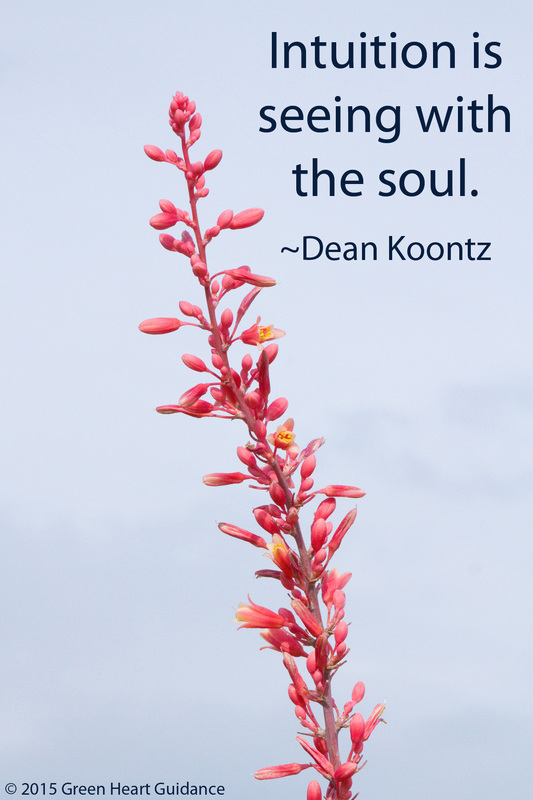
 RSS Feed
RSS Feed